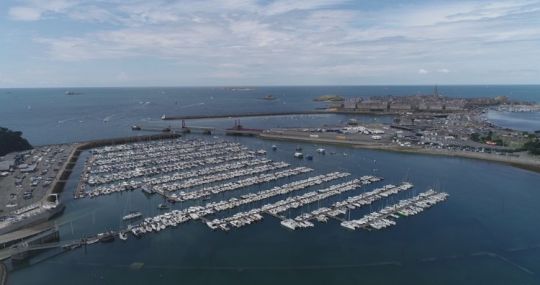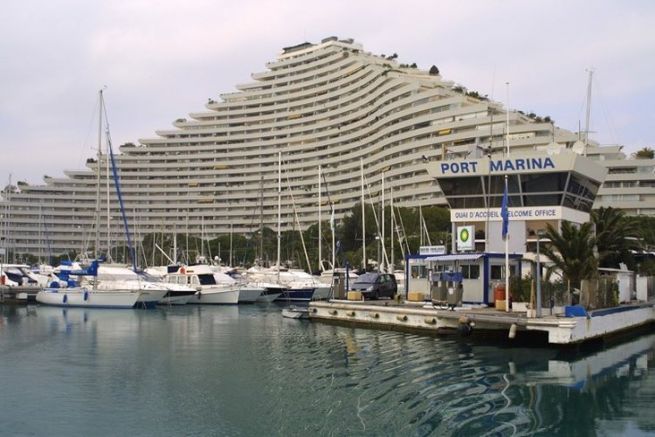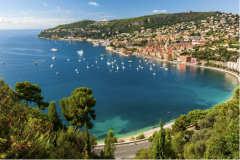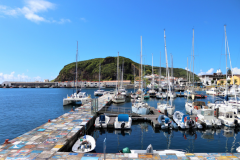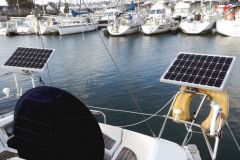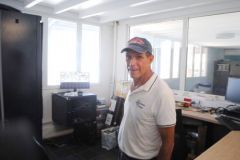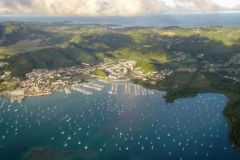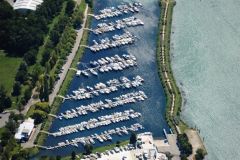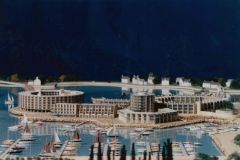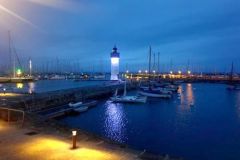It is customary to designate a place, an object, a function, by a word. This is the very basis of language and of understanding the dialogue between people. But unless we do etymological, semantic or lexicological research, it is rare that we ask ourselves the question of the deep meaning of the word.
Thus, everyone agrees that a marina is a port dedicated to the practice of pleasure boating, consisting of a basin in which pleasure boats are parked, as opposed to a fishing port in which fishing vessels are moored, or a commercial port which receives cargo ships. This is why the question "what is a marina?" is so obvious that it seems totally incongruous to ask it.

However, I suggest that we take a closer look at this, in light of what the new boating practices are and what is expected of this place that is the marina today.
The port, today
It is essentially in the 1960's that the concept of marina was born, succeeding the "yacht basin" which appeared in the first half of the 20th century as a space dedicated to a few privileged owners in the corner of a port dedicated to professional maritime activities. The Anglo-Saxon world and the rest of the world have mostly retained another name for the "marina", preferring the generic term of "marina", to which the French language has conferred the reductive meaning of a marina accompanied by a real estate program...
The word port, from the Latin portus, appeared very early since it was already used before J.-C., at the time of the Phoenicians or of Cicero, to designate a shelter for boats and a place allowing trade, or the departure of colonists. Much later, in the Middle Ages, the ports, which have since developed enormously, are the source of population movements, passages, exchanges and various trades... And today, what characterizes the great seaports of Rotterdam to Singapore through Shanghai or Le Havre is almost exclusively the notion of transit between sea and land. The port has thus become a place where people enter, disembark, embark, mainly goods, or even passengers, but where they only stay for the shortest possible time. The same is true of fishing ports, which are equipped to handle an express landing of the tide, so that ships can set sail again as quickly as possible, weather permitting. It is the reign of "touch and go". Beyond the indispensable shelter it represents, and its infrastructures which constitute a purely functional characteristic, the modern port therefore takes on its full meaning in its notion of interaction between the sea and the land, which allows two worlds to communicate with each other. Over time, the notion of shelter has gradually faded away to the benefit of the interconnection function.
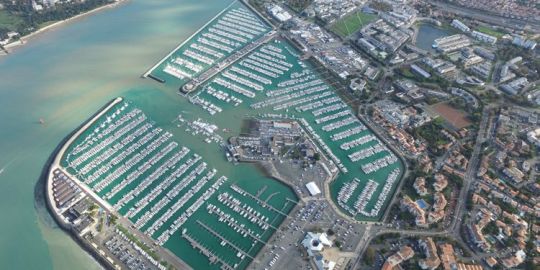
The port is thus only an interface and not a place where one stays. Moreover, by extension, a computer port is only an interface allowing two computers to communicate with each other. An airport is only a place where the sky and the earth, planes and passengers can communicate. Do we stay in an airport? No, we go there for a purely rational purpose, that of boarding a plane, and even if airports make great efforts to make their terminals attractive and develop ever richer commercial spaces, no one goes to an airport simply to shop! The determining factor in an airport is to spend as little time as possible there. It's not a destination, it's an obligatory passage.
The marina is a place of life
It is therefore profoundly different from what is expected of a marina today, a space that is intended to become a place of attraction and life in the heart of a city, where one can practice different practices, reside, have sensory experiences, be entertained...
In the early 2000s, the trend-setter "Boat & B" intended to promote the rental of boats at the quay in French marinas. The profession was unanimously against this practice, which was then violently opposed. 15 years later, this activity has reappeared, first in an insidious way, then carried by numerous platforms, and marinas have had to adapt to this new trend, not by pushing it back, but by trying to regulate it. And today, floating accommodation in marinas, and rental at the quay, are seen as relevant solutions in certain sites!
When the stadium becomes an arena
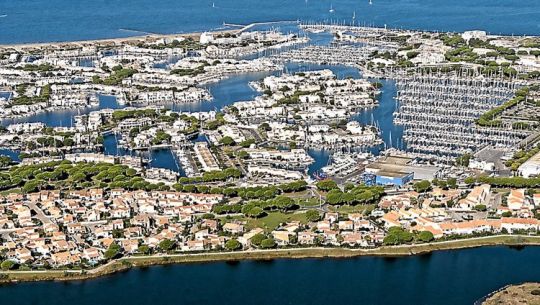
Let's consider this time another example of a place dedicated to leisure activities: the stadium. This space is designed for the practice of sports and has a double vocation. It provides an ideal place for sportsmen and women to engage in collective physical activities, and it allows spectators to follow and encourage these performances. In recent years, stadiums have gradually opened up to other disciplines than sport, becoming amphitheaters hosting concerts, cultural events or conferences. We no longer speak of stadiums, but of arenas, and all the new facilities that are built or rehabilitated have a vocation that is extended to new uses. By becoming arenas, the stadiums have conquered a new and wider public, which would never have set foot in such a place before.
The dream of turning marinas into arenas of the sea, as Arenys de Mar, on the Catalan coast, might suggest, is undoubtedly being considered as a way to broaden their target... An arena of the sea, a maritime arena, from there to see a marena, there is only one step... which brings us back to the marina.
To speak of a marina therefore seems inappropriate. By continuing to use such a term, we cultivate the analogy with the modern port, which is no longer more than a transit interface, we lock ourselves into a restrictive meaning, and even more so into the old-fashioned conception of a place reserved only for pleasure boaters. It will be all the more difficult to open these sites to a new public and to make them attractive and multidisciplinary places to live if we continue to assimilate them to simple interconnection spaces... It is therefore time to review our language habits: Long live the marina!
